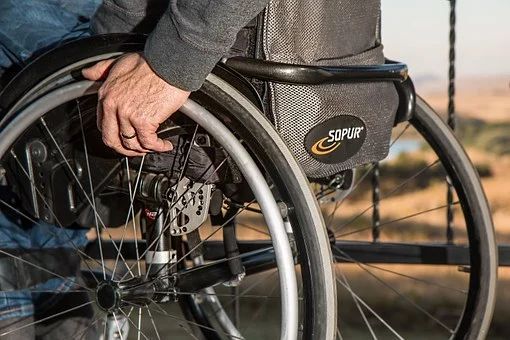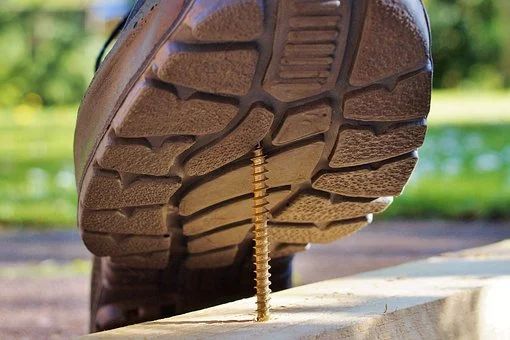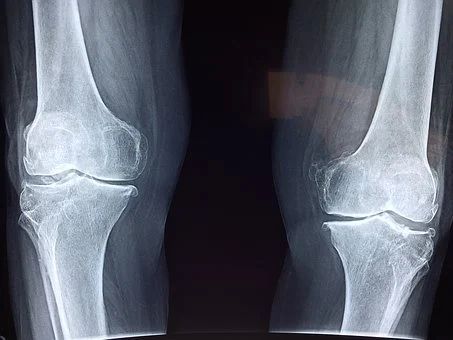Workers Comp vs. Disability: What’s the Difference?
Whenever workplace injuries come up, there seems to be a lot of confusion over the terminology. If you’re unable to work–is that worker’s compensation or disability? The answer depends on what question you’re asking. Here, we’ll take a look at two common types of insurance that employers carry to cover medical expenses and/or wages in the event of workplace injuries.

What is Workers Compensation?
Employers are federally-mandated to carry minimum workers’ compensation insurance in the US. This coverage is for workplace accidents. It pays medical expenses and possibly wages for lost time and liability protection for the employer. Many states across the country have separate legislation in place, and that’s why some differences depend on what state you’re in.
Workers’ compensation protects both employers and employees. It’s s a no-fault system. That means injured employees receive benefits instead of filing a lawsuit, and companies avoid the legal battle and bad press. In most cases, employees can heal from their injuries and return to work in a relatively short amount of time.
Related: Can I Still Get Workers’ Comp if a Workplace Injury is My Fault?
But there are always exceptions to the rule.
The plot thickens when the accident results from gross negligence on the employer’s part or the result of malicious intent. In those cases, the employee may have a right to workers’ compensation benefits and a separate lawsuit for damages.
The protections of workers’ compensation also do not extend to wrongful termination, discrimination, or retaliation lawsuits claiming that the company took specific actions against an injured employee due to their workers’ compensation claim.
What it Covers
Any injury sustained on the job is eligible for workers’ compensation. This includes common injuries like back pain from lifting or moving boxes or carpal tunnel syndrome from the repetitive motion of an assembly line. Other common injuries include:
- Slips, Trips, and Falls
- Hazardous Chemical Exposure
- Burns
- Acts of Violence or Terrorism
- Natural Disasters
- Struck by Objects
- Forklift Accidents
- Falling from a Ladder
- And Much More
What it Doesn’t Cover
While the definition of a workplace accident is broad, there are some circumstances in which the state of California does not require workers’ compensation to cover an injury.
These include:
- Injuries that Pre-Date Employment
- Injuries that Occur Outside of Work
- Injuries Sustained Under the Influence of Illegal Substances
- Injuries Sustained Deliberately
- Injuries Resulting from Illegal Conduct
If you’re having trouble getting a workers’ compensation claim started, give us a call. Invictus Law has over 30 years of experience in Orange County workers’ compensation claims.
Related: What is a Return to Work Supplement?
What is Disability?
Disability can refer to many different things, so the term is so confusing. There is disability insurance that is often provided as a benefit through an employer. And there are permanent disability benefits provided through the federal government. Either can apply in these situations.
- Short Term Disability: Temporary inability to work for up to six weeks.
- Long-Term Disability: Temporary inability to work for up to one year.
- Permanent Disability: Medically unable to return to work in the same capacity.
Short-term disability insurance is designed to provide supplemental income in the event of a prolonged recovery from injury or illness that exceeds the employees’ allotment of sick leave. Short-term disability is typically available on the first day of the event and provides benefits for up to 90 days.

Long-term disability is a similar type of insurance. It is designed to provide supplemental income for extended recoveries. Benefit periods are based on the policy, with common employer benefits offering 1-2 years of coverage and some privately purchased policies offering between 5-10 years of coverage. Long-term disability insurance typically has a 90-day waiting period, so it’s common for employees to carry both short and long-term plans.
These types of disability insurance are used for injuries or illnesses that are not related to the job. Workers who suffer an injury on the job should be compensated through workers’ compensation insurance.
Permanent disability, the type of disability that is most commonly associated with workers’ compensation claims, is a government benefit rather than a type of insurance that you purchase. Disability benefits draw from the social security fund for eligible individuals.
Related: What to Know About Reopening an Old Workers’ Comp Claim
What to Know About Permanent Disability
What happens if your workplace injury leaves you with severe deficits? It’s not uncommon for workers’ compensation claims to remain open for up to one year or more as workers complete long-term rehabilitation and therapy. But for some, total recovery never comes. And at some point, a medical doctor will determine that the case is not likely to fully recover. And when that happens, you’re looking at the possibility of permanent disability.
Permanent disability applies when an individual can no longer perform the duties of their job due to physical or mental limitations from their injury. A few severe injuries are designated as automatic qualifiers for permanent disability. Everyone else will need to go through a medical determination process for eligibility. Depending on the outcome, you may end up with full benefits, partial benefits, or no benefits. That’s why it’s important to work with a knowledgeable workers’ compensation attorney to represent your case.
Injuries that Automatically Qualify for Disability:
Some disabilities are generally considered severe and debilitating, meaning that there is often no question about your eligibility for disability benefits. For example, if you:
- Lose both hands
- Lose both feet
- Lose one hand and one foot
- Become Bedridden
- Lose Most or All Eyesight
In addition to these, any diagnosis that involves long-term facility care or a diagnosis involving severe mental health deficits like PTSD or schizophrenia is likely to be approved for total disability.

If You’re Hurt at Work, Get the Help You Need
The legal team at Invictus Law is your top resource in Orange County for navigating workers’ compensation claims and the disability approval process. Our knowledgeable lawyers work hard to help you get the benefits you’re entitled to. In over 30 years in business, we’ve successfully helped our clients recover millions. The claim process is long and filled with important deadlines that can keep you from getting what you need to cover medical expenses and lost income. Working with a capable legal team is just one way that you can ensure things go your way.
The Bottom Line on Workers Comp vs. Disability
So, the long and short of it is that workers’ compensation is an insurance policy that your employer carries to cover the expenses related to work-related injuries. It will cover your medical expenses and compensation for lost wages while you recover. If you don’t recover, you may be eligible for permanent disability, which will provide compensation based on the extent of your disability for the rest of your life. Permanent disability should not be confused with private disability insurance, which is a benefit that you may receive through an employer but is designed for personal injury or illness recovery.
At Invictus Law, we believe that efficient, aggressive legal action is the best way to get your benefits. Call today to schedule a consultation.

